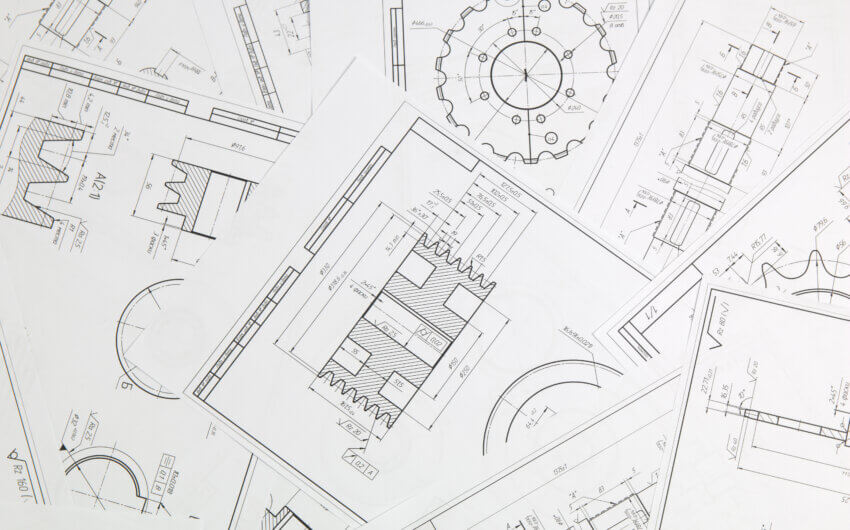What’s a construction manager?
A construction manager oversees the planning, budgeting, and construction of buildings and infrastructure, like bridges and roads. Essentially, a construction manager ensures everything goes smoothly throughout an entire project.
We reviewed several construction manager job descriptions on LinkedIn to compile the most common roles and responsibilities construction managers perform day-to-day:
- Lead and direct a team to ensure standards for safety and productivity are met.
- Schedule and coordinate all design and construction processes.
- Interpret and explain contracts and technical information to team members.
- Report work progress and expense management to clients.
- Respond quickly to work delays, problems, or emergencies.
- Partner with architects and engineers to establish the construction needs.
- Work with local authorities to receive proper licenses and permits for the project.
If you’re interested in entering a construction manager career path, here are the soft and technical skills you’ll need to be successful:
- Effective Communication – Construction managers must have good communication skills to effectively collaborate with engineers, architects, construction workers, and clients. Successful construction managers are great active listeners who can provide clear instructions to their team members.
- Direct Leadership – Managing employees means getting them to work together to stay on track of your construction schedule. Inspire your team by maintaining optimism and showing dedication to your work.
- Detail Oriented – Following a building’s design is a must. It’s also crucial construction managers pay close attention to measurements, required materials, and timelines. Most importantly, construction managers need to be vigilant about safety, and prevent accidents.
- Tech Savvy – Knowing how to use industry-related technology like drones, building information modeling (BIM), computer-automated design (CAD), and cloud-based project management software is becoming more important for construction managers. These tools help people visualize entire buildings, are more accurate than blueprints, and help complete projects on time. These technologies make it easier to catch mistakes and stay on track.
What are the different industry paths within construction management?
What’s exciting about a construction manager’s path is that it can span various industries, including:
- Civil: In this industry, construction managers partner with municipal, county, state, or national governments. Projects include working on roads, water lines, tunnels, bridges, or government buildings.
- Industrial: Projects in this sector include power plants, factories, and other manufacturing buildings.
- Commercial: Construction managers on traditional commercial sites work on projects like retail spaces, office buildings, storefronts, hotels, and restaurants.
- Agricultural: This industry is much more niche than the rest. Typically, construction managers in this sector will work on warehouse buildings for food storage and distribution.
- Institutional: These projects include hospitals, schools, fire and police stations, and other public service buildings.

How do you become a construction manager?
To become a construction manager, you usually need to have an associate’s or bachelor’s degree in engineering, construction science, construction management, or a related discipline.
However, you can also become a construction manager by completing an apprenticeship program or by starting out as an assistant construction manager.
Here are five ways you can become a construction manager:
- Get an Education – While technical and community colleges offer construction management programs, you may want to consider earning a bachelor’s degree since 90% of construction managers have one. Majors to look for are construction management, building science, and engineering. There are plenty of highly regarded construction management programs in the U.S.
- Earn Licenses – Most employers may not require specific licenses but earning credentials beyond your degree can demonstrate your expertise and make you a standout applicant. One of the most useful credentials you can earn is an OSHA certification.
- Consider Earning an Advanced Degree – A master’s degree in construction management (or a related discipline) can help advance your career into a vice president of construction management role. This promotion would result in a higher salary and more responsibilities. A master’s degree usually takes two years to complete.
- Join an Apprenticeship Program – Learn from professionals in the field and get hands-on experience. Completing an apprenticeship usually guarantees employment. To find a program, The National Center for Education & Research is a great resource.
- Become an Assistant Construction Manager – You can increase your chances of getting hired as a construction manager more quickly by working as an assistant.
What software does a construction manager use?
There are many software options available to construction managers. These tools vary by industry, project, and even company. Here are some of the most popular CAD tools construction managers use:
- AutoCAD
- AutoCAD Civil 3D
- Autodesk Revit
- Autodesk Construction Cloud
- Bluebeam
- Sketchup
While construction managers spend most of their time with CAD software to create precise drawings or illustrations of new buildings, employers will also look for proficiency in project management software. Project management software is great for collaborating, delegating tasks, sharing updates, and keeping files all in one place.
How much does a construction manager make?
The construction manager’s salary range in the U.S. is between $69,000-$155,000, according to Glassdoor.
The average base pay of a construction manager in the U.S. is $84,245. These roles are sometimes referred to as construction engineer or facilities manager and require 5-7 years of experience.

The average base pay of a head construction manager in the U.S. is $96,340. These roles require a minimum of 4-8 years of experience.
The average base pay of a senior construction manager in the U.S. is $112,004. These roles require 8+ years of experience.
Note: Construction manager salaries vary depending on several factors including
- where you live,
- which industry you work in (e.g., civil, industrial, or commercial),
- what company you work for (e.g., a Fortune 100 company or the local government), and
- years of experience.
Is construction management a good career path?
If you’re thinking about going down the construction manager career path, it’s a safe bet!
The Bureau of Labor Statistics predicts that job growth is expected to climb 8% from 2021 to 2031, which equates to about 41,500 new positions each year over the next decade.
Construction managers’ job satisfaction is above average; construction management ranks #29 in U.S. News 100 Best Jobs. U.S. News reports that for construction managers, stress levels are low, they have good work-life balance, and the opportunity for advancement and salary increases are high.

What are some popular construction manager courses?
SolidProfessor is the leading platform for online courses for construction managers, architecture, engineering, and manufacturing design. We work with individual learners, schools, and businesses to educate beginners and advanced professionals to learn high-value skills and inspire innovation.
Here are our most popular online courses for construction managers:
- AutoCAD Courses
- AutoCAD Civil 3D Courses
- Autodesk Revit Courses
- Autodesk Construction Cloud Courses
- Bluebeam Courses
- SketchUp Courses
Interested in other engineering careers?
Explore other engineering career articles just like this one.
- Structural Engineering
- Mechanical Engineering
- Architect
- More coming soon!
























